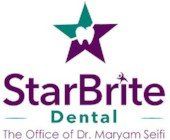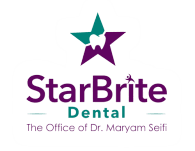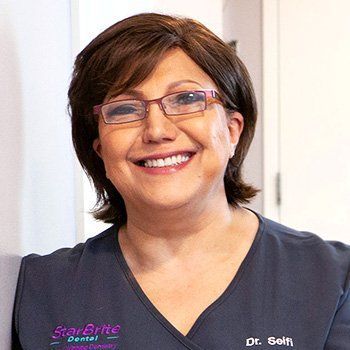Airway Centric Full-Mouth Reconstruction: What You Should Know
What You Should Know Before Getting Full-Mouth Reconstruction
If you’re reading this, your dentist has probably recommended that you get a full mouth reconstruction. Or perhaps you’re just wondering if your teeth need a major overhaul. In either case, there are some key facts you should know about full-mouth reconstruction before committing to one. Let’s review some basics first.
What Is Full Mouth Reconstruction?
Also known as
dental reconstruction, full mouth reconstruction refers to a series of dental procedures designed to restore the full function and appearance of your teeth and gums. Unlike an elective
smile makeover to enhance a person’s smile, a
full mouth reconstruction is more extensive and required to protect your oral and overall health.
How Does Full Mouth Reconstruction Protect My Health?
The condition of your teeth and gums plays a vital role in your overall health. Oral bacteria, unchecked, can lead to a variety of serious conditions including heart disease, cardiovascular disease, pneumonia, premature birth and low birth weight. That’s because your mouth acts as a portal to your body. Although much oral bacterial is harmless, some of these organisms are harmful and can cause disease when they enter the body. For example, severely crooked or crowded teeth are much more difficult to keep clean than aligned teeth. The overgrowth of harmful oral bacteria can infect other parts of your body. A person who needs full mouth reconstruction is at a higher risk of illness than someone who does not—illness that can lead to serious medical conditions.
When Full Mouth Reconstruction Is Recommended
Your dentist will likely recommend a full mouth reconstruction if you have one or more of the following situations:
- Dental trauma from an accident or injury
- Numerous missing teeth
- Multiple cracked, broken or decayed teeth
- Extremely worn-down teeth from teeth-grinding, jaw–clenching or acid erosion
- Severe jaw misalignment
- Hereditary dental or oral conditions requiring extensive dental work
What Full Mouth Reconstruction Consists Of
Depending on your case, your full mouth reconstruction will include a combination of procedures to address your unique needs, such as:
- Implants, single-tooth and full-mouth implants
- Dental crowns and bridges
- Traditional braces or clear aligners
- Teeth cleaning below the gumline or gum surgery
- Veneers or bonding
- Bone grafts /
oral surgery
How Full-Mouth Reconstruction Works
Full-mouth reconstruction is never a one-size-fits-all task. For that reason, the process always begins with a consultation and comprehensive exam from your dentist. The exam will include determining your own treatment goals, X-rays and other advanced digital imaging so your dentist has a full, detailed overview of your oral and dental health.
With all this information to hand, your dentist will customize a treatment plan for you to restore the function of your teeth and the beauty of your smile.
What to Check Before Getting a Full Mouth Reconstruction
You might wonder how you got to the point of needing a dental reconstruction. For sure, oral hygiene plays a role and if you’ve had an accident or blow to the face, then the answer is obvious. But if a large number of your teeth are damaged, missing, worn down or otherwise impaired, there is likely an underlying reason and that quite possibly lies in your oral structure. If there are any structural issues regarding your mouth or jaw, these need to be addressed before proceeding with your reconstruction.
You’d never build a house on a defective foundation. If you did, walls might shift, the roof may tilt, floors could crack and the entire house may collapse. The same analogy applies to your mouth: rebuilding your teeth and gums on a shaky foundation could wreck the results, no matter how beautiful they are. That’s why a first-rate dentist knows to look beyond a full mouth reconstruction to its underlying cause.
Facial Structure and Obstructive Sleep Apnea
Obstructive sleep apnea (OSA) is a serious medical condition in which the person temporarily stops breathing while they sleep. Here’s why: during sleep, the tongue should suction up against the roof of the mouth. This keeps it out of the airway so a person can breathe easily and sleep soundly all night long. With today’s smaller mouths, however, the tongue has inadequate space to rest against the palate. Instead, it falls back blocking the airway as a person sleeps. Allergies and sinus issues cause a stuffy nose as well, further obstructing the airway.
Adding insult to injury, orthodontists were taught to
extract teeth to make room for braces, a common practice to this day. The extractions caused patients’ jaws to shrink even more. Orthodontic headgear was also prescribed to pull back “buck teeth” only to discover these contraptions not only stunt jaw growth; they force the jaw to grow downward. The jaw then pushes back in to the airway, blocking airflow during sleep even more.
A person with
mild sleep apnea may stop breathing 15 times
per hour. A person with severe sleep apnea can stop breathing
hundreds of times a night. These constant interruptions disrupt sleep causing sleep deprivation which can lead to high blood pressure, heart disease, diabetes, obesity, a compromised immune system, depression and more.
Correct Your Airway Before Full Mouth Reconstruction
A dentist trained in sleep dentistry—treatment of oral issues which disrupt sleep—knows to first check your oral structure and airway before embarking on full mouth reconstruction. If the structural irregularities which initially damaged your teeth are not corrected, they will again damage your teeth after your full mouth reconstruction with all that time and money down the drain.
Let’s take snoring for example. Snoring stems from a blocked airway during sleep and puts pressure on the teeth. This chronic pressure fractures teeth and fillings. If snoring is not addressed, damage to the teeth will continue and reverse the positive effects of dental work.
In addition to sleep apnea, airway disorders cause jaw-clenching and
teeth-grinding which also stress the teeth causing cracks, shifts and other complications. That’s why the airway must be checked and corrected before full mouth reconstruction is done.
Blocked Airway Symptoms
The following symptoms are just a few of the many related to airway disorders including obstructive sleep apnea:
- Cracked, chipped or otherwise damaged teeth
- Crowded, crooked teeth
- Misaligned bite, TMJ
- Teeth-clenching, teeth-grinding
- Mouth-breathing
- Loud snoring
- Gasping for air during sleep
- Waking up with headaches, dry mouth or feeling unrefreshed
- Severe daytime drowsiness
- Obesity
- Irritability
- Depression, anxiety
- Learning disorders
Vivos DNA Oral Appliance for Your Airway
Your dentist, if trained in sleep dentistry, can work with you to identify any oral issues blocking your airway and provide a solution to address them. One such solution is the Vivos DNA oral appliance.
At StarBrite Dental, in Rockville, MD, we use the Vivos DNA appliance because it’s based on a medical breakthrough. Most airway oral appliances hold the lower jaw open during sleep to keep the airway clear. Such devices have varying degrees of workability and must be worn every night for life. By contrast, the Vivos DNA appliance reshapes your mouth into its optimal structure. In other words, it stimulates new bone growth so that your palate, jaws and arches fully develop as nature intended. No other device on the market does that.
Once your Vivos treatment is complete, your oral structure will be corrected, your airway unblocked and you can get your full mouth reconstruction with confidence the results will last.
Your Next Step—Get Your Airway Checked
Now that you know your full mouth reconstruction will only succeed when your airway is in good shape and any oral structural issues are addressed, it’s time to consult with a dentist trained in sleep dentistry. Here are the measures Dr. Maryam Seifi, StarBrite Dental’s owner, will take to check your airway before proceeding with full-mouth reconstruction:
- Dental and Medical History Review: A thorough review of your dental and medical history including detailed questionnaires
- Oral Exam: Comprehensive oral exam
- Physical Assessment: Bodily signs of airway obstruction such as posture issues and uneven facial features
- CT Scan: Diagnostic CT scan of your neck and mouth to get highly detailed image of your airway
Recommendations: A customized treatment plan to fully treat your airway issues.
Schedule Your Consultation
If you’ve been told you need full mouth reconstruction or suspect you have airway issues, schedule an appointment with Dr. Maryam Seifi, owner of StarBrite Dental in Rockville, MD. In practice for over two decades, Dr. Seifi is not only a leading dentist in the region, she is a diplomate of the American Sleep and Breathing Academy and a certified dentist by the American Academy of Dental Sleep Medicine.
Call StarBrite Dental at (301) 770-1070



